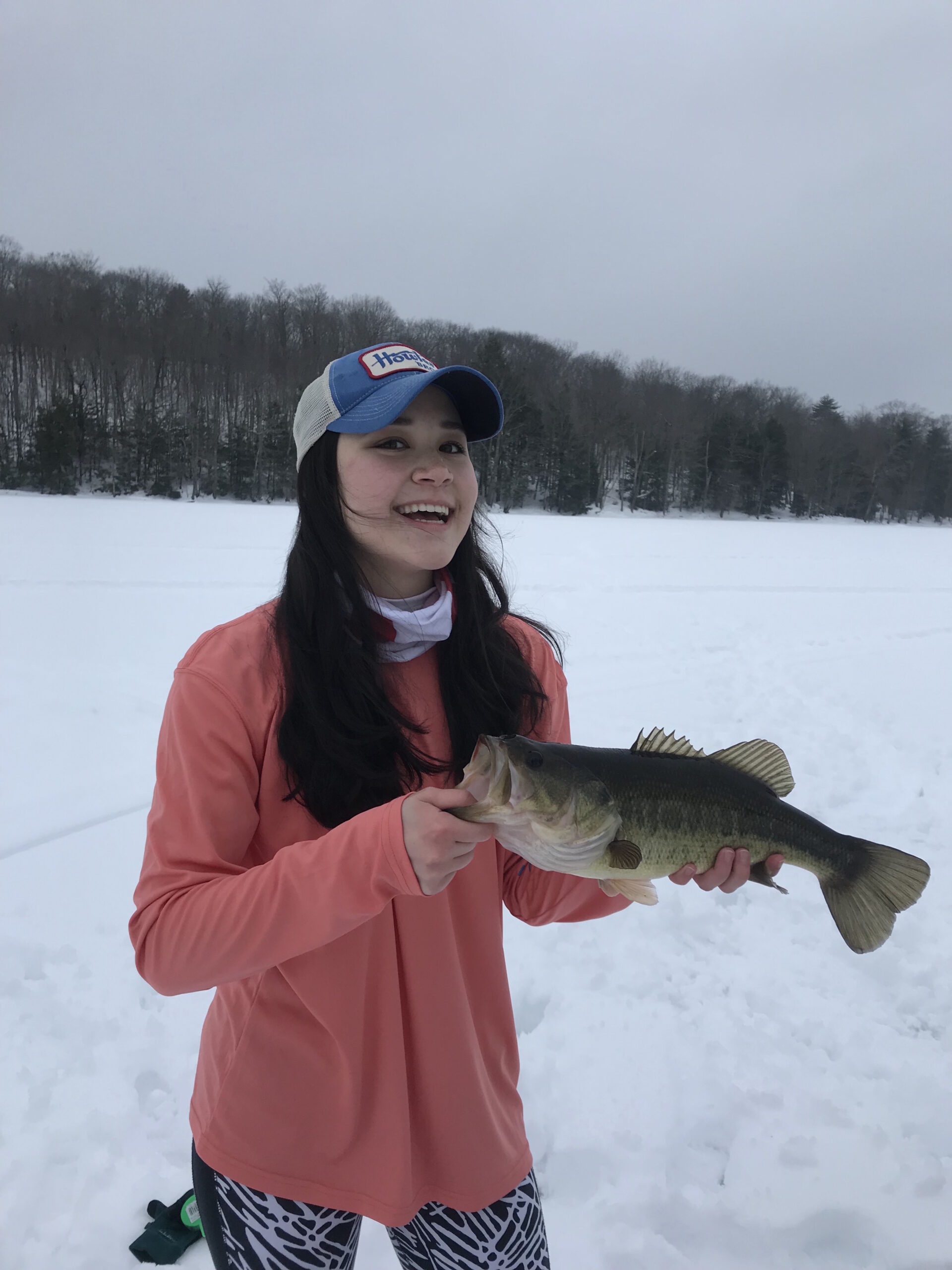Gone fishing, polar bears hit the ice
February 8, 2019
 Courtesy of Jane Chang
Courtesy of Jane ChangLast Saturday, a group of 12 Bowdoin students went to six-mile-long Pleasant Pond in Litchfield, Maine to go ice fishing. This is no Outing Club or official club trip; just a bunch of students who love to fish. Though some of the anglers prefer fly fishing or spin fishing, ice fishing is their go-to weekend activity during the winter.
Pleasant Pond is the ice fishers’ favorite place to go and less than 30 minutes from campus. It’s typical to spend around four to five hours on the ice, but smaller trips are offered, too, that last approximately three hours.
Jane Chang ’20 and Kenny Lamm ’20, both avid fishermen, praise the guidance and support of Macauley Lord ’77—self-proclaimed “fish-crazed Bowdoin alum” and previous department head at L.L. Bean for fly fishing. In 2012, Lord received the Lifetime Achievement Award from the Federation of Fly Fishers—the highest distinction in the fly casting world.
Chang says the alumnus often sends out emails to a big list of Bowdoin students inviting them to go fishing and bringing them to the best spots.
“You can even see him at Thorne eating dinner with students sometimes,” Chang said. “He’s a really generous guy and he loves to teach people. Ice fishing is made possible because of him,” added Lamm.
Lamm has been ice fishing since seventh grade and admits that, while it can be boring sometimes, there’s more to the sport than what meets the eye.
“It’s surprisingly social,” said Lamm. “All you’re doing is sitting there in the freezing cold and just talk[ing] to people.”
Students ice fish either by using a jig—a flexible fishing pole about 18 inches long—or tip ups.
“Tip ups are basically traps, and when the fish takes the bait and starts pulling the line, the flag will pop-up,” Lamm said.
Since tip ups do not need individual supervision, students set up as many as 50 at a time to improve their chances.
“There’s this huge rush of excitement [when a flag pops up],” Chang said. “Everyone’s running up to the flag to see what they caught. It could be something really cool, like a pike which has super sharp teeth and are pretty big, or it could be a perch or a bass.”
The most common fish students catch is the panfish, a narrow fish that resembles a plate. Sometimes they catch larger and rarer fish such as the largemouth bass, perch and the smallmouth bass. While most of the trips are catch and release, the students occasionally have a good haul and celebrate with a big fish fry.
“They’re pretty small so you can fry them pretty fast,” Lamm said.
The first time Lamm went fishing at Bowdoin he caught a six-pound largemouth bass.
“We didn’t know it was going to be a bass because it was pulling so hard,” Lamm said. “Luckily we were using the hole that was 10 inches wide. The standard is usually six to eight inches, so if it had been six inches the fish wouldn’t have fit through because it was so big and thick.”
However amidst all the fun, the danger of falling through the ice is real in the Northeast. Lake and pond ice conditions are typically safe for use in January, but Lamm pointed out that ice fishing season can begin even earlier in parts of Maine.
“As long as the ice is thick enough, you can go whenever you want,” Lamm said. “They say four inches is necessary for walking. The thing that’s dangerous though is it could be four inches where you are standing but a foot away it could be two inches and you have no idea. Ideally you should have at least six inches of ice to be safe.”
Lamm and Chang love the sport and introducing newcomers to it. Unlike fly or spin fishing, it has few technical aspects that could prevent students with no experience from joining. In the last few months of winter, the group hopes to expand its membership and encourage fishing across campus.
Comments
Before submitting a comment, please review our comment policy. Some key points from the policy:
- No hate speech, profanity, disrespectful or threatening comments.
- No personal attacks on reporters.
- Comments must be under 200 words.
- You are strongly encouraged to use a real name or identifier ("Class of '92").
- Any comments made with an email address that does not belong to you will get removed.

I’m lovin’ it! I actually just read like three of your posts today. So that means you better keep writing more, because I am going through these like they’re going out of style.